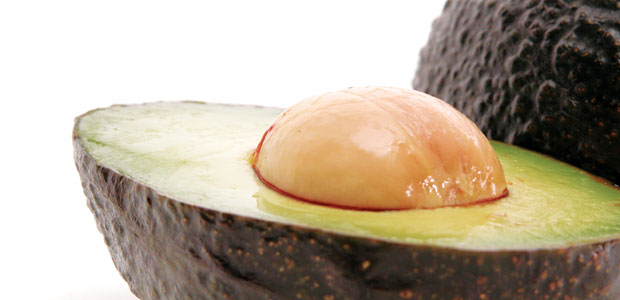Advertisement
A Recipe for Good Sex
According to the countless commercials and advertisements dedicated to the topic, you can get good sex by purchasing an array of products ranging from pills and fashionable clothing to shampoo, face cremes, and new cars. While enticing ad campaigns may fool us into believing that sex comes with a price tag, the truth is that … Continued

According to the countless commercials and advertisements dedicated to the topic, you can get good sex by purchasing an array of products ranging from pills and fashionable clothing to shampoo, face cremes, and new cars.
While enticing ad campaigns may fool us into believing that sex comes with a price tag, the truth is that good health is the foundation for good sex. In fact, one of the best ways to build sexual health is through nutrition.
Though many studies link poor nutrition with diseased sexual organs or reproductive problems, such as prostate cancer and infertility, the direct role of nutrition in promoting sexual health is rarely, if ever, examined. Nevertheless, it is easy to deduce that good nutrition is a key to good sex. Food affects how we feel and how we function.
Sexual Nutrients
Every nutrient required for good health is also necessary for good sex. In addition, however, there are certain nutrients that are specifically helpful when it comes to sex.
Research shows that the metabolism of hormones is dependent on nutrients that include B vitamins, vitamin E, zinc, and essential fatty acids. B vitamins are necessary for the brain and glandular health; vitamin E is required for the adrenal glands, thyroid glands, testes, and ovaries; zinc nourishes the pituitary, testes, and ovaries; and essential fatty acids are necessary for overall and hormonal health. Foods rich in these nutrients include whole grains, pumpkin and sunflower seeds, nuts, fish and seafoods, eggs, leafy green vegetables, mushrooms, nutritional yeast, wheat germ, oysters, beans, and legumes.
Sex and Food
Aside from its nutrient value, food has long been associated with sex. The English language reflects this intimate relationship with pet names for lovers, such as cupcake, sweet pea, and honey. Even sexual anatomy may be associated with foods, such as nuts and melons.
According to Asian traditions, many foods are thought to have qualities that affect sexual function. Chives, for example, are thought to increase qi (energy circulation) and strengthen sexual capacity. On the other hand, if “cooling” foods, such as turnips, kale, and soybeans, are frequently eaten, their anti-thyroid chemicals may have a cooling effect on sexual desire.
There is a long history of belief in edible aphrodisiacs–foods that arouse sexual urges and/or enhance sexual performance. Many derive their reputation from the simple fact that they resemble genitalia, as in the case of asparagus, bananas, carrots, and ripe figs. Many other aphrodisiacs, however, after centuries of use, are being validated by modern research as capable of offering some benefits to sexual health. Casanova, for example, who was said to have eaten a large number of oysters daily, was consuming a high amount of zinc in doing so. Zinc is important to general health and is required for testosterone, sperm, and semen production and is therefore associated with sexual potency.
The avocado had an ancient reputation for inducing sexual prowess. The Aztecs, whose name for the avocado was ahuacatl, which means testicle, used the avocado as a sex stimulant and believed so deeply in its sexual nutrients that virgin women were forbidden to leave their houses during avocado harvest days. Avocados are a good source of potassium and folate, nutrients important to circulation and heart health. The Department of Urology at the University of Michigan Medical Center states that heart health is essential for erectile health. The avocado is also rich in essential fatty acids and certain B vitamins.
Chocolate, which is often considered an aphrodisiac, contains phytochemicals that produce endorphins–the “feel-good” hormones–and also contains phenylethylamine, an amphetamine-like chemical produced in the brain of people who are in love.
Good Nutrition
Just as good nutrition can promote good sex, poor nutrition may result in poor sex. Sugar and processed foods affect blood sugar levels, which affect moods and energy levels and also lead to nutrient deficiencies, affecting sexual desire and performance.
While good sex may be dependant on many factors, including physical fitness, self-image, and healthy relationships, nutrition affects all of these and more. Our food choices influence the health of our sex organs, hormonal balance, and even mental and emotional health.
Healthy bodies boast the energy, stamina, and circulation necessary to experience good sex–attributes that are much more important for good sex than a new car.




